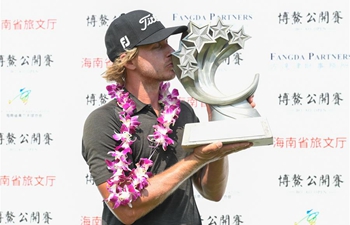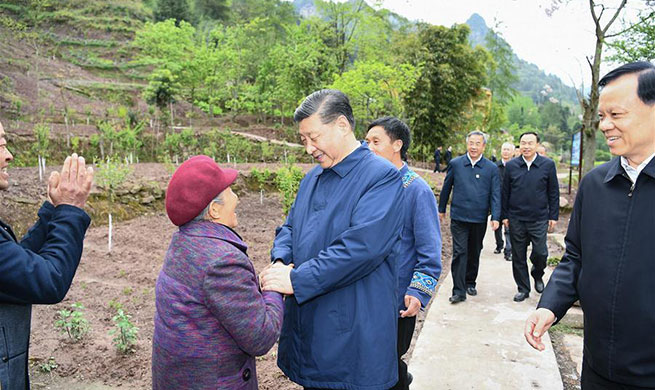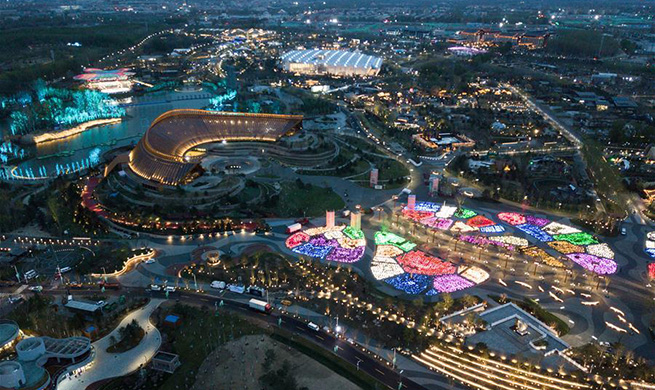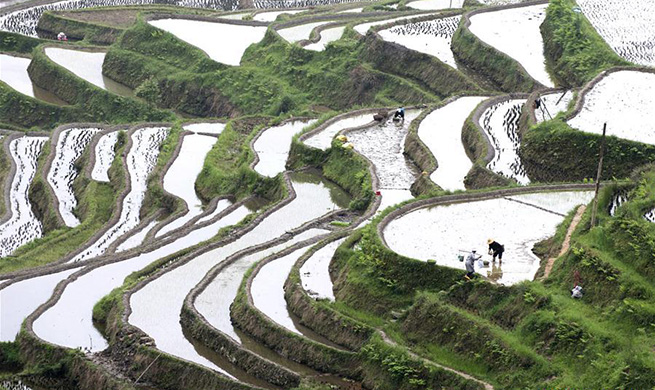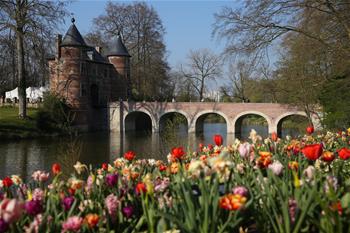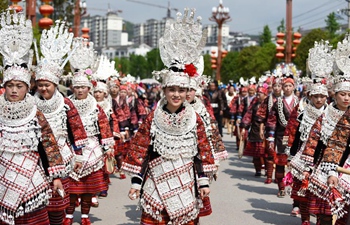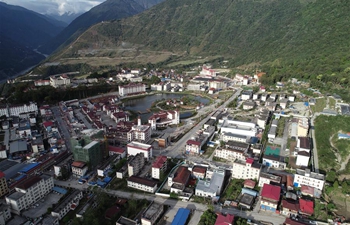ROME, April 21 (Xinhua) -- Francesca Manenti was dismayed when her first report on China published in 2013 received little attention. Embroiled in a financial crisis, Italy then had a bumpy ride. "People had no time to look further afield," she said. "Asia was perceived as far away."
However, an about-face followed. Three months after the publication, China proposed the Belt and Road Initiative (BRI), and a global community looked towards China again. The Italian researcher found a new topic of interest.
"At that time, we were not so aware of what the Belt and Road could be," said Manenti. "So we kept studying it month after month."
This March, as a step further in the bilateral relations, China and Italy signed a memorandum of understanding to jointly advance the construction of the Belt and Road. Italy thus became the first Group of Seven member to join the BRI.
"It was the first time that we saw a window of opportunity to increase and improve our work specifically on China," Manenti said.
Manenti has published more research reports on China, focusing on the 19th National Congress of the Communist Party of China, China's economic and foreign policies, and the impact of the BRI on Italy and Europe.
"It's really a game changer, something really new that gives a new framework for one very important thing -- that is connectivity," she said.
Manenti entered the Rome-based Center for International Studies as an intern in 2013 and is now a senior analyst in charge of Asia and Pacific affairs there.
Founded in 2004, the independent think tank provides data and strategic decision analysis for clients around the world and cooperates with its partners to hold seminars. Recently, Manenti and her colleagues have been preparing for a new research program based on the BRI.
The project is the biggest to fall into Manenti's hands since she joined the institute. She uses the Chinese character "Xiang," which means "towards" in Chinese, as its theme, with the focus of exploring the potential of the BRI for Italy.
She summarized her understanding of the BRI with four keywords: "innovative," "comprehensive," "worldwide," and "idealistic."
"After so many years (when) we were not aware of the possibility to look eastward," Manenti said, "we'd like to give to public opinion and stakeholders all the keys ... for finding this new direction."
